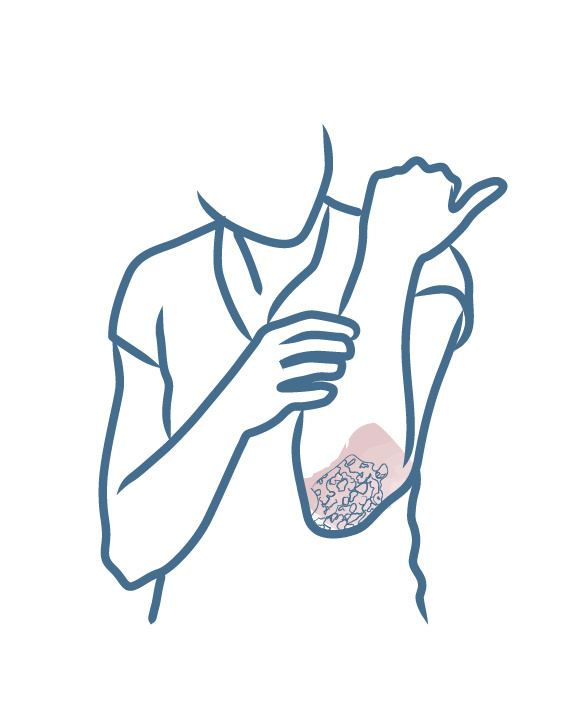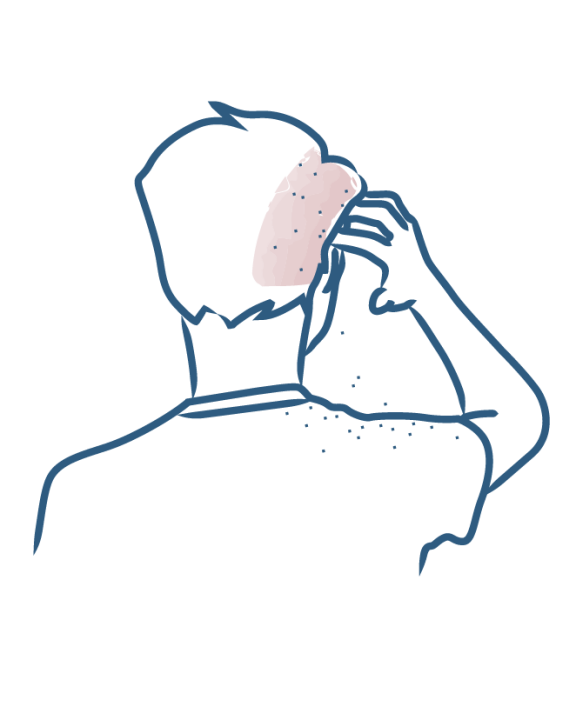What causes psoriasis?
Is psoriasis genetic?
When you have psoriasis, you often look for the causes or origins of the disease within yourself or in your environment. Psoriasis is undoubtedly genetic in origin, with about 30% of people with psoriasis having a family history of the disease.
Psoriasis: a complex and multifactorial disease
But the figure is not as high as 100%, so psoriasis is not always simply hereditary, it is not always just a "family affair". There is no single gene responsible for the disease, but rather a combination of several so-called predisposition genes that may potentially combine with certain environmental factors such as climate, stress and lifestyle, to cause skin and/or joint damage. It is important to remember that psoriasis is a complex and multifactorial disease. It is common to feel resentment, shame or guilt when you have psoriasis, but this should not stop you from living your life! The only option is to always try your best, follow your treatment correctly, avoid trigger factors as far as possible, and take care of your skin every day.
Can psoriasis be passed on to children?
There is a question people often ask about the origin of psoriasis: since psoriasis has a genetic and hereditary component, will I transmit the disease to my children? It is a real worry for parents, particularly if they have had a bad experience with the disease being highly visible and/or painful. Figures are available on psoriasis transmission:
- if one of the parents is affected, the child has roughly a 15% risk of developing the disease;
- if both parents are affected, the risk rises to 40%.
It is impossible to predict in advance whether or not the disease will be transmitted. However, if their child or teenager does develop the disease, parents who are already affected may be in the best position to help the patient manage their psoriasis, and may perhaps do so more effectively than when looking after themselves. Nonetheless, they must try not to become too overprotective and should allow the child to play an active role.
More information
- Discover Is psoriasis an autoimmune disease?
What causes psoriasis?
Is psoriasis an autoimmune disease?
- Discover Psoriasis: an inflammatory disease
What causes psoriasis?
Psoriasis: an inflammatory disease
Our care routines
Psoriasis-prone skin
Dermatological expertise
To better understand your skin and hair, discover our exclusive content and innovative care products designed to improve your quality of life..


